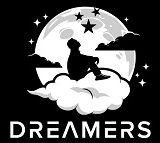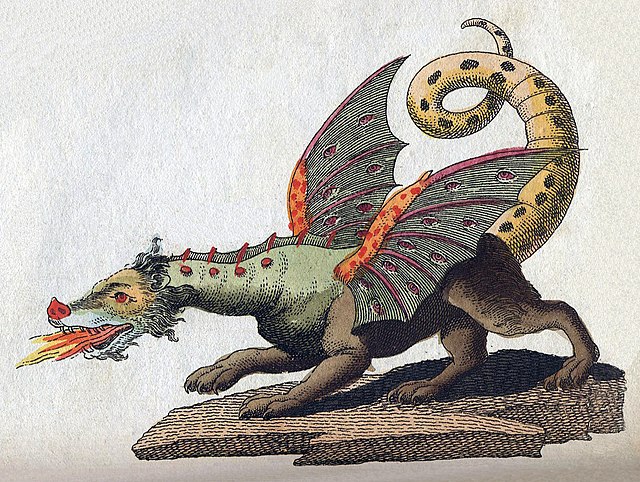Throughout human history, dreams have captured the imagination, serving as a gateway to mysterious realms and insights into the human psyche. Dream fantasies, with their intriguing symbolism and otherworldly narratives, have played a significant role in shaping cultures, literature, and beliefs. This article delves into the evolution of dream fantasies, tracing their journey from ancient mythology to modern times.
Dream Fantasies in Ancient Mythology
In ancient civilizations such as Egypt, Mesopotamia, and Greece, dreams were considered divine messages from gods and ancestors. They held great significance in the interpretation of events and decision-making. For example, in ancient Egyptian mythology, dreams were believed to reveal the future or offer guidance for the deceased in the afterlife. In Greek mythology, gods often communicated with mortals through dreams, influencing the outcomes of wars and destinies of heroes.
FAQs:
- What is the historical significance of dreams in different cultures?
Dreams held spiritual and prophetic importance in various ancient cultures, guiding individuals and societies in important matters. - How did ancient civilizations interpret dream fantasies in their mythology?
Dreams were seen as messages from deities, providing insights, prophecies, and divine guidance.
Dream Fantasies in Medieval Folklore
During the medieval period, dreams took on new dimensions. Dream visions and prophetic dreams were a prevalent theme in medieval literature, reflecting the religious and philosophical beliefs of the time. These dreams often carried moral lessons or served as allegories for spiritual truths. Religious texts influenced dream interpretations, with dreams being perceived as messages from the divine realm.
FAQs:
- What role did dreams play in medieval folklore and literature?
Dreams were commonly used as narrative devices to convey moral teachings and philosophical concepts. - How did religious beliefs influence dream interpretations during this period?
Dreams were often seen as divine communications, carrying messages from God or other spiritual entities.
Dreams and the Renaissance Mind
The Renaissance era saw a shift in the depiction of dreams, transitioning from purely religious themes to more human-centered narratives. Artists and writers explored dreams in their works, viewing them as windows into the human subconscious. Dreams became a source of inspiration for literary figures like William Shakespeare, who skillfully used dream symbolism in his plays to convey deeper meanings.
FAQs:
- How did the Renaissance period change the portrayal of dreams in art and literature?
The Renaissance emphasized the human experience, and dreams were seen as reflections of the individual’s inner thoughts and desires. - What role did dream symbolism play in Shakespearean plays and other literary works?
Shakespeare used dreams to explore themes such as love, destiny, and the subconscious mind.
The Rise of Dream Psychology
In the late 19th and early 20th centuries, dream psychology emerged as a field of study. Sigmund Freud’s groundbreaking work on dream analysis revolutionized the understanding of dreams. He proposed that dreams are the “”royal road to the unconscious,”” uncovering repressed desires and conflicts. Carl Jung further contributed to dream interpretation, introducing the concept of archetypes in dreams.
FAQs:
- What were Sigmund Freud’s major contributions to dream analysis and psychology?
Freud’s work highlighted the connection between dreams and the unconscious mind, revealing the hidden desires and fears of individuals. - How did Carl Jung’s concept of archetypes influence dream interpretation?
Jung believed that certain symbols and themes in dreams were universal, representing shared human experiences and emotions.
Dreams in Modern Literature and Film
In the 20th century, dreams continued to captivate the creative minds of writers and filmmakers. Dreams became a literary device, allowing authors to delve into the subconscious and experiment with surrealism. Modernist writers like Franz Kafka and James Joyce used dream-like narratives in their works. Similarly, filmmakers embraced dream sequences as a powerful storytelling tool, blurring the line between reality and fantasy.
FAQs:
- How do dreams influence contemporary literature and filmmaking?
Dreams offer a unique narrative structure and allow artists to explore complex themes and emotions. - What are some notable authors and filmmakers known for their representation of dreams?
Writers like Franz Kafka and filmmakers like David Lynch have gained fame for their surreal and dream-like storytelling.
Dreams in Contemporary Pop Culture
In contemporary times, dream fantasies have extended beyond literature and cinema. Musicians and songwriters have incorporated dream-related themes into their lyrics, tapping into the mystique of dreams. Additionally, virtual reality has provided new avenues for dream exploration, offering users the opportunity to experience alternate realities through simulated dreams. Online dream journals and communities have also emerged, enabling individuals to share and analyze their dream experiences.
FAQs:
- How are dream fantasies portrayed in music and songwriting?
Musicians often use dream-related imagery and metaphors to evoke emotions and convey their artistic expressions. - How is virtual reality changing the way we experience dreams?
Virtual reality technology allows users to enter dream-like virtual worlds, blurring the lines between reality and fantasy.
The Neuroscience of Dreams
Advancements in neuroscience have shed light on the mechanisms of dreaming. Dreams primarily occur during Rapid Eye Movement (REM) sleep, a stage when the brain is highly active, but the body is immobile. While the exact purpose of dreams remains a topic of debate, researchers propose various theories, including memory consolidation, emotional processing, and problem-solving.
FAQs:
- Is there any scientific basis for dream interpretation?
While dream interpretation remains subjective, scientific studies have helped understand the neural basis of dreaming. - What are some theories on the purpose and function of dreams?
Dream theories include memory consolidation, emotional regulation, and the brain’s attempt to process daily experiences.
Lucid Dreaming and Conscious Exploration
Lucid dreaming, a state where the dreamer is aware they are dreaming, has fascinated researchers and enthusiasts alike. Lucid dreamers can consciously control their dreams, leading to extraordinary experiences and personal growth opportunities. Some practitioners have used lucid dreaming as a means of creative exploration and problem-solving.
FAQs:
- What is lucid dreaming, and how is it practiced?
Lucid dreaming involves becoming aware of the dream state while still asleep, allowing individuals to control their dreams consciously. - Can lucid dreaming have any benefits beyond personal growth?
Some individuals use lucid dreaming to explore their creativity, address fears, and work through emotional challenges.
Future Trends: Dreams and Technology
The future of dream exploration seems intertwined with technology. Virtual reality technology is becoming more sophisticated, enabling users to immerse themselves in highly realistic dream-like experiences. Researchers are also exploring ways to record and analyze dreams using brain-computer interfaces. However, ethical considerations arise with the potential manipulation of dreams and privacy concerns.
FAQs:
- How is technology influencing dreams and dream experiences?
Virtual reality and brain-computer interfaces offer new ways to explore and interact with dreams. - What are the ethical implications of manipulating dreams through technology?
The ethical concerns include consent, privacy, and the potential impact on mental well-being.
Conclusion
From ancient mythology to modern times, dream fantasies have played an integral role in shaping human beliefs, literature, and creativity. They have been regarded as divine messages, allegorical lessons, and reflections of the human subconscious. As we continue to unlock the mysteries of dreaming through science and technology, dreams remain a fascinating aspect of the human experience, offering insights into the depths of our imagination and consciousness.
Embracing the powertheir explanation of dream fantasies, we embark on a journey that transcends time, connecting us to our past, present, and the uncharted territories of the future.

Welcome to my corner of the digital world. I am Evelyn Rivers, a passionate and dedicated professional psychologist with a profound fascination for the realm of dreams, their meanings, and their immense potential for emotional and spiritual healing. Through this website, I aim to illuminate the path to self-awareness, growth, and enlightenment, driven by the power of dreams and their significance in our lives. More about the author

